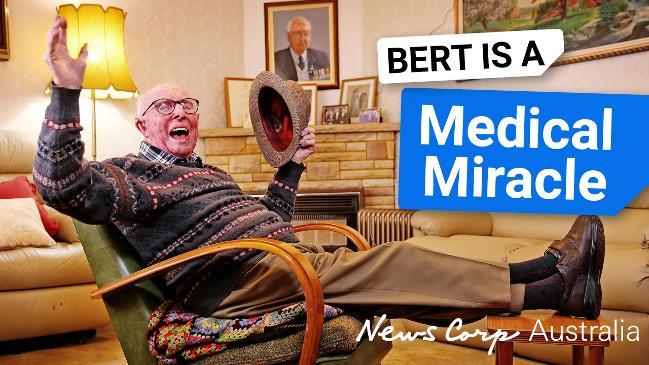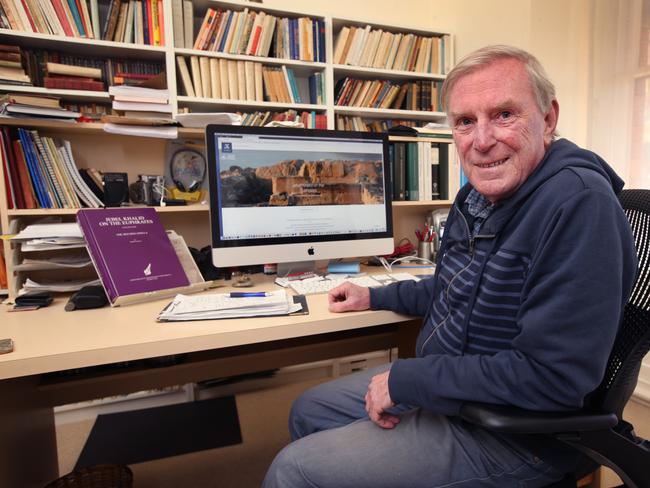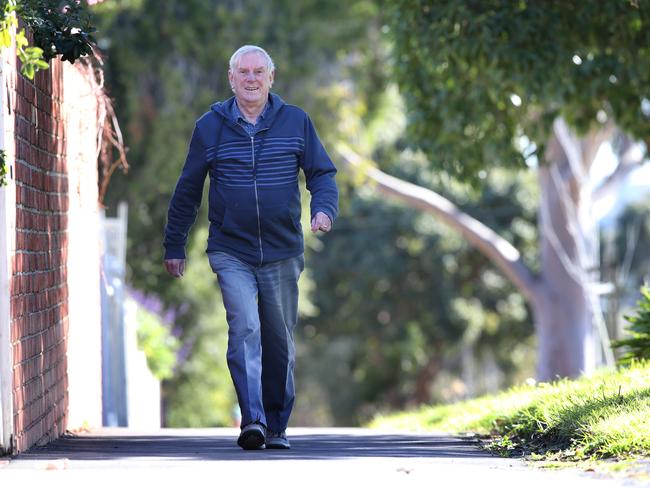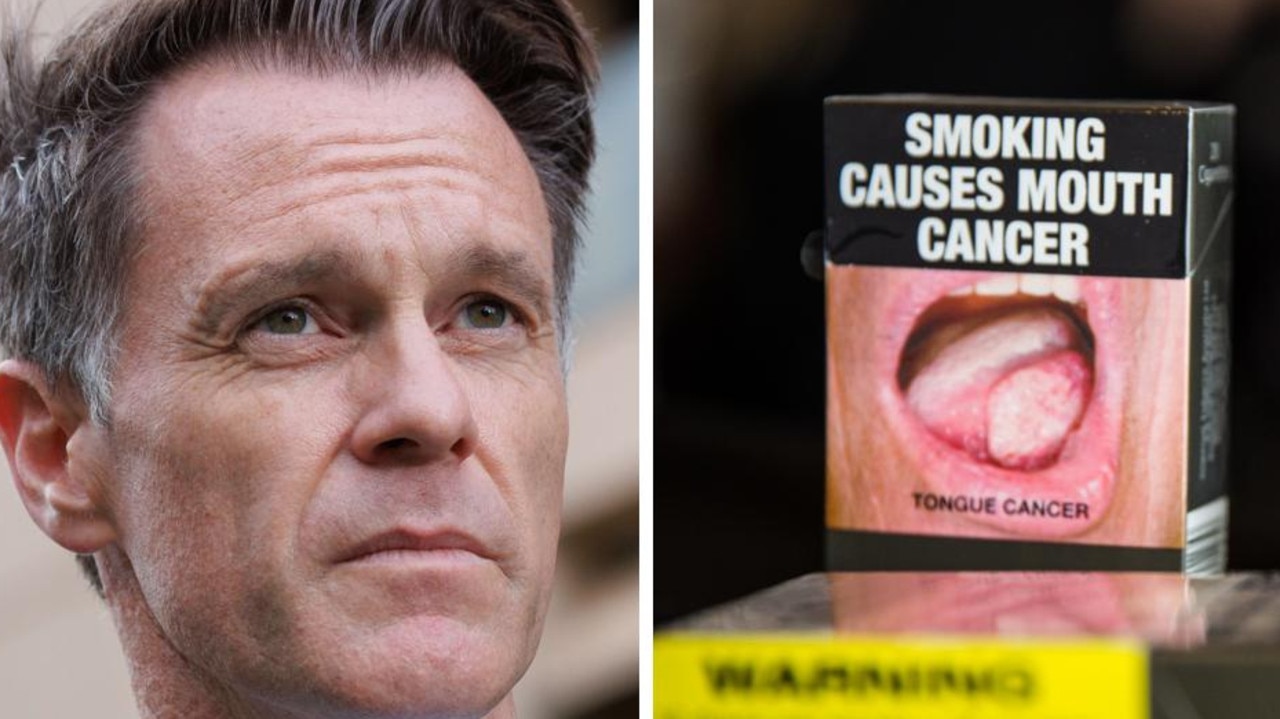Melbourne man spends $80,000 on the miracle cancer drug that saved his life
THREE months after being diagnosed, John Burke’s cancer disappeared. But the miracle treatment that saved his life has cost him over $80,000 — and there’s no government subsidy.

Illness
Don't miss out on the headlines from Illness. Followed categories will be added to My News.
EXCLUSIVE
DIAGNOSED with Stage 4 lung cancer in 2017, John Burke should, in his words, be “gone for all money” but he’s alive and cancer free thanks to a miracle response to the drug Keytruda.
But staying alive has cost the 72-year-old Melbourne University history lecturer $80,000 so far because the treatment that saved his life is not covered by the nation’s drug subsidy scheme.
Every three weeks he has to find another $825 for his treatment - which he does by spending all his superannuation on the drug while living off his wife’s retirement income.
Keytruda has been rejected or delayed for a government subsidy for first line treatment in lung cancer three times and this week the Pharmaceutical Benefits Advisory Committee (PBAC) will deliver its latest ruling.
A subsidy could help 1000 lung cancer patients who, unlike Mr Burke, can’t afford the drug by slashing the cost of the immunotherapy to just $39.50 per month.

Pharmaceutical company MSD first asked the PBAC for a subsidy for certain non-small cell lung cancer patients in October 2016.
Since then the treatment has been before the government advisory body four times with the last being in July this year.
In March the PBAC delayed recommending a subsidy because it wanted more information on the number of people who could benefit and said the pharmaceutical company should cut the price of the drug which can cost up to $150,000 per patient per year.
Clinical trials show Keytruda reduces the risk of death from non small cell lung cancer by 37 per cent in patients who have high levels of the Programmed death-ligand 1 (PD-L1), a protein that suppresses the immune system.
At 18 months the trial showed 61.2 per cent of patients using Keytruda were alive compared to 43.0 per cent of those using standard chemotherapy treatments.
Half those using Keytruda had no progression in their cancer compared to 24.6 per cent in the chemotherapy group after 18 months.
Mr Burke’s lung cancer was stage four when he was diagnosed, it had spread to his kidney and liver and he was told it was terminal.
But after just three treatments with Keytruda, a PET scan at three months showed the cancer had disappeared.

Mr Burke’s doctor Associate Professor Tom John of the Olivia Newton-John Cancer Centre in Melbourne said patients whose tumours are more than 50 per cent positive to PDL1 are most likely to respond to Keytruda.
“For him (John Burke) to be alive and be perfectly well after 15 months is remarkable,” Dr John said.
Another of Dr John’s patients who was dying also responded well to Keytruda. “We basically resurrected them, their cancer is all gone”.
Dr John says a subsidy for the treatment is a “no-brainer”.
“When you see these sorts of responses in a subset of patients, even if the tumour comes back it comes back at a later point in time. And they are starting at a much better position than if they have chemo first.”
The United States, Europe and Indonesia have approved it as a first line treatment, he said.
Not everyone responds as well as Mr Burke, who has suffered side effects including a rash and his pituitary gland stopped functioning. He has taken medicine to fix this.
In rare cases, the treatment can cause the immune system to attack normal organs and tissues and this can lead to death.

Mr Burke says unlike chemotherapy Keytruda allows him to “live life normally”.
“I’m flat out working, translating Medieval Greek history into English, just edited a book on a Medieval Greek saint’s life, I’m building a website for archaeologists on a site in Syria,” he said.
Keytruda has also made it possible for Mr Burke to pay a debt to a former colleague who died in her 30s from breast cancer. He has turned her PHD theses on Saint Pancratius of Palmina into a book.
“This has given me my life back,” Mr Burke said.
“It ought to be on the PBS.”
Keytruda is approved for use in many types of cancer including melanoma but it is not subsidised for them all in Australia.
The PBAC, the independent expert body that recommends new medicines for listings on the PBS, is soon set to hold a public forum on whether it should change its procedures to approved subsidies for new immunotherapies across many different types of cancer instead of considering each disease one at a time.
Originally published as Melbourne man spends $80,000 on the miracle cancer drug that saved his life


